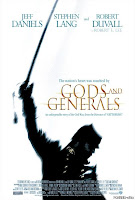Who doesn't enjoy taking it to the French? 1000 Years of the Annoying the French is a unique kind of history book. It's a tongue-in-cheek look at history since the Normans invaded England in 1066, focusing on the many encounters England and France have had over the centuries. Written by a Brit who's intimately familiar with his cross-channel neighbors (he's lived in Paris for years), the book is enjoyable and educational.
For maximum enjoyment of this work, adjust your expectations in the following ways:
1) Since the focus is on Anglo-French encounters (on a national or personal scale), the book will dwell at length on one situation (say, the Hundred Years' War) or personality, then zoom forward decades (or centuries) to the next item of interest. So don't expect equal treatment of time periods or famous persons, and don't expect explanations for every event mentioned (Clarke mentions the Boer War, for example, but only in the context that it ticked off the French- he doesn't discuss its causes, goals, etc). For that reason, you may enjoy this more if you have a cursory knowledge of Anglo-French history, to help put each situation in context (most of the events/people are pretty well-known, though, so you don't need to be a scholar).
2) A goal of the book is to dispel popular beliefs about certain historical events, with the intent of revealing France's failures and foibles. For example, the Normans (from Normandy, in what is modern France) that invaded England were not French- they were the descendants of Scandinavians who hated the French. So don't let the French take credit for them. As another example, Joan of Arc was killed by the English (a fact well publicized), but the French themselves had a large role in her condemnation, selling her to the English to die, and sentencing her to death for wearing trousers (i.e. dressing like a man). Though she's a patron saint of the country today, France actually killed her off first. Stories similar to this abound throughout the book- highlighting ways that France has 'misremembered' events that don't cast it in a glorious light. Every nation has events that it twists for the sake of national pride, and this book focuses full-bore on France's. If you don't like that idea, you won't enjoy this book.
3) This is tongue-in-cheek history. The author casts things in an amusing light- easy to do, because let's face it: we humans have a knack for doing stupid things, and that tendency holds true on the national level as well as the personal. This book celebrates that, in a sense. It has echoes of comedy writing (similar to Dave Barry), though it's not as far-fetched as Barry, nor does it contain made-up situations. It focuses on the facts, especially amusing facts, and the author lets the foolishness of the people(s) and the time(s) speak for itself.
Overall, I really enjoyed this. My interest held the entire time (which is atypical for me with history books), and I learned a good deal. Being pretty familiar with English history, this book gave me a dash of French history as well, which I appreciated. The "zooming" around certain events (item 1) above) didn't bother me as much as I initially thought it would, because Clarke always zooms to interesting people and times, and provides fascinating background and little-known facts for each. It's almost like watching a series of History Channel presentations on notable people and events in England and France from 1066 to the present day. You get an episode on each, and each is intriguing.
Clarke does a good job of being fair, in a way- he doesn't put the British up on a pedestal (most of the time), and when he does, it's in an obviously-nationalistic way, and tongue-in-cheek. He recognizes that all people and nations have dark moments, and so he doesn't try to hide Britain's- he just focuses on France's. It almost comes across as the playful kidding of long-time neighbors, sitting on a porch reminiscing about the funny or foolish things they did in their lives. It's just a one-sided conversation, with one neighbor getting the limelight, and using it to say "look at you silly French people and your ridiculous antics over the years."
Rating: A

























































